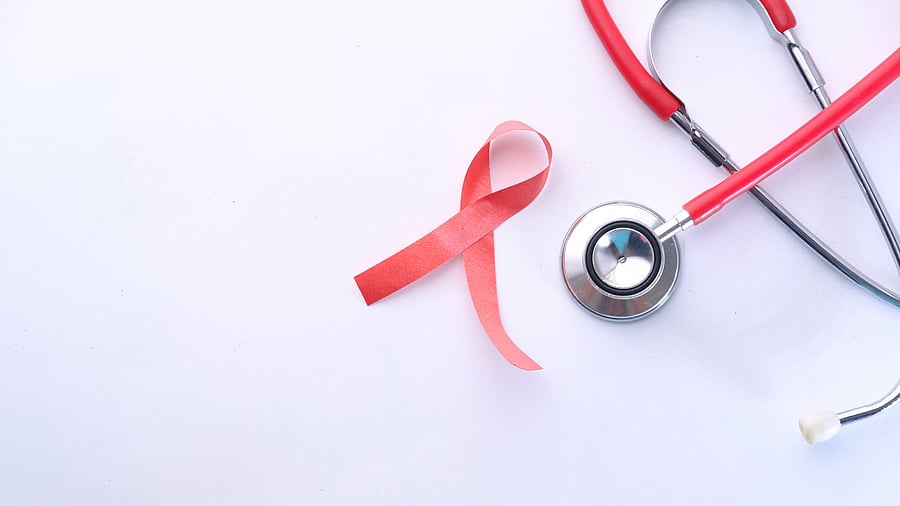
Representational image only.
Credit: iStock
Mumbai: The gains made in fighting AIDS need to be protected from co-infections and co-morbidities, according to doctors and health experts.
“Globally, 86% people living with HIV knew their status, 89% of them were on antiretroviral therapy, and 93% of those on the therapy were virally suppressed. This makes it possible to live healthy normal lives but a range of co-infections, comorbidities and antimicrobial resistance continues to threaten to reverse the progress made in HIV response,” said Dr Ishwar Gilada, Emeritus-President of AIDS Society of India (ASI) who also serves on the Governing Council of International AIDS Society (IAS) and as Chairperson of IAS Asia Pacific.
HIV response needs to address threats like TB, hepatitis and anti-microbial resistance, said Mumbai-based Dr Gilada, an infectious diseases expert at the 16th National Conference of AIDS Society of India (ASICON 2025) in Ahmedabad.
Dr Juergen Rockstroh, Professor of Medicine and Head of the HIV Outpatient Clinic at the University of Bonn, who was awarded ASI Lifetime Achievement Award, said there are an estimated 290 million people with hepatitis B virus (HBV), 58 million people with hepatitis C virus (HCV) and 40 million people with HIV – and some of them are co-infected too.
He called for scaling up HBV vaccination for all eligible people. “There is a significant reduction in liver-disease related deaths among those co-infected with HIV and HBV if they are treated with antiretroviral drugs that are proven to have dual activity against both,” he said.
Dr N Kumarasamy, Chief and Director of VHS Infectious Diseases Medical Centre, Chennai and Co-Chair of ASICON 2025 said that misuse and overuse of lifesaving antiretroviral medicines have made the virus resistant, in which case we need to treat people with newer drugs. But newer drugs are limited and call upon responsible use of an@retroviral medicines, treatment monitoring and adherence.
Dr Prapti Gilada, microbiologist at UniLabs Mumbai, said that misuse and overuse of medicines is making it difficult to treat a range of infections in the general population as well as among people living with HIV (such as STIs for example). Infections that were simpler to treat earlier, are becoming difficult to treat (or untreatable at times). She called for early and accurate diagnostics (find the right disease-causing bug), treat it with right medicines (AMR stewardship) and optimal infection prevention and control practices to prevent AMR.
Dr Trupti Gilada, infectious diseases expert at Unison Medicare and Research Centre and Co-Organising Secretary of ASICON 2025 said that people living with HIV do show weight gain months after initiation of antiretroviral therapy. Obesity puts them at an elevated risk of a range of life-threatening conditions such as cardiovascular diseases, diabetes, among others. Preventing obesity will help lead them healthier lives, she added.
